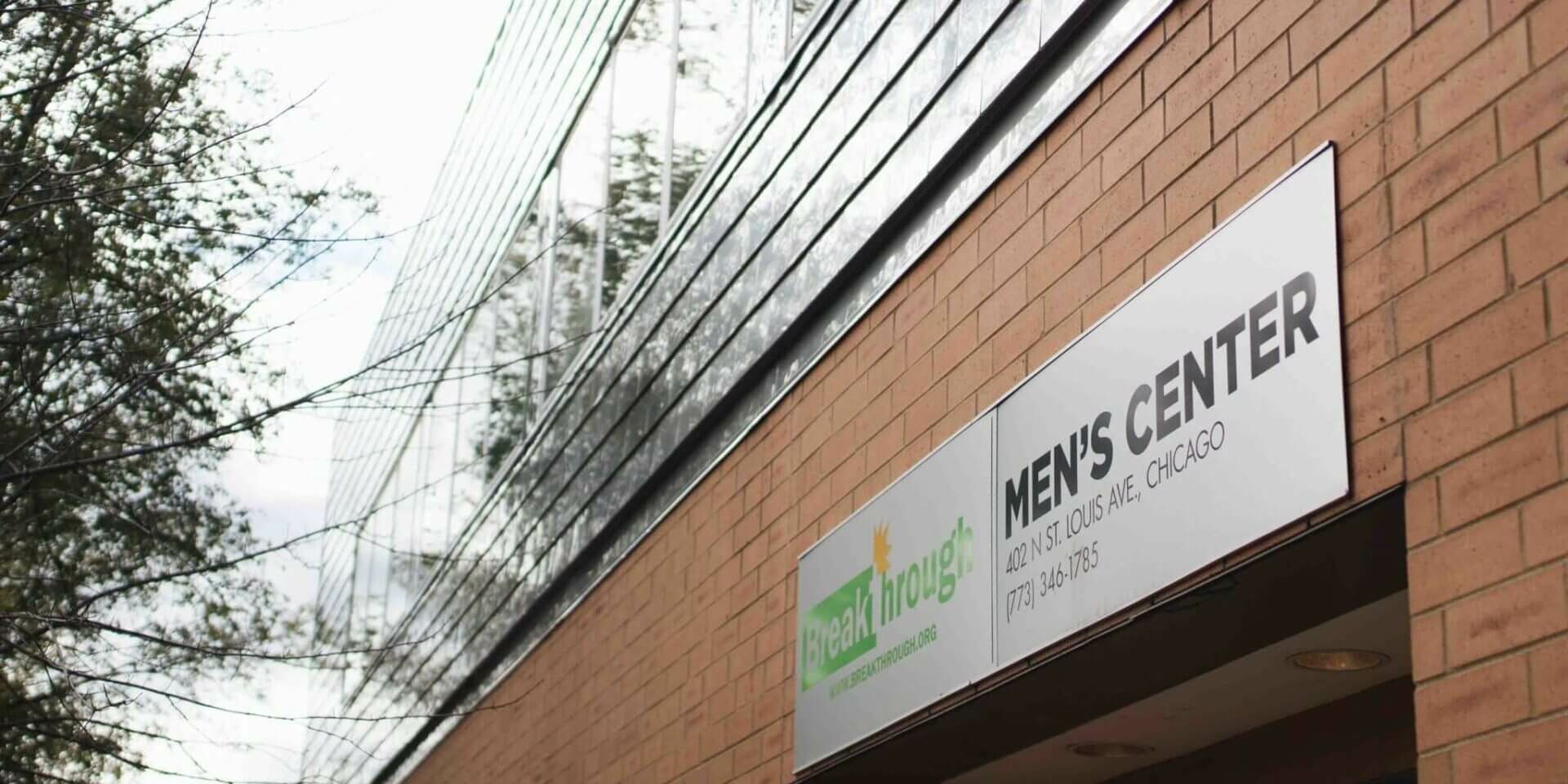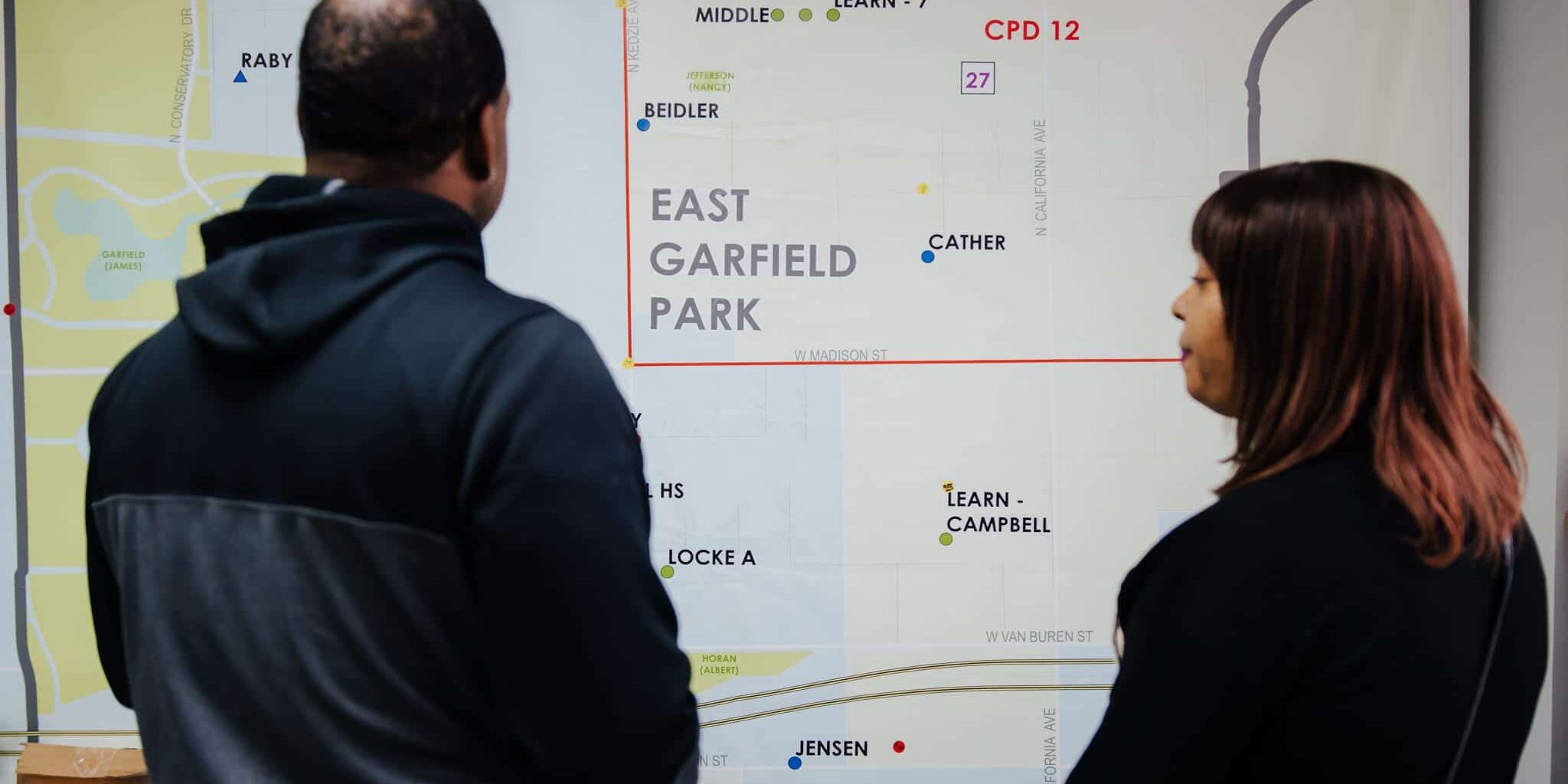
After more than 20 years working in unison with the residents of East Garfield Park, Breakthrough’s “people first” focus has helped unify the community. With experts in workforce development, violence prevention, education and more, our work and service has benefitted from the leadership that drives our teams and staff on the front lines doing the work.
Our Vision Shapers series highlights expertise from Breakthrough leadership on issues impacting our community and work.
COVID-19 isn’t the only epidemic in Chicago. From 2019 to 2020, there was a 32 percent increase in opioid-related emergency responses and a 52 percent increase in opioid-related deaths with communities on the city’s West Side being disproportionately affected.
There are several factors that have contributed to this crisis, such as the economic uncertainties and stress caused by the pandemic or isolation, which increases the intensity of substance use and mental health symptoms. Another important component is the dramatic rise in fentanyl-laced drugs, a powerful synthetic opioid, across the United States in recent years.
Opioids produce high levels of positive reinforcement so it is more likely that people will continue using them despite negative consequences. This can lead to a substance use disorder, which is a chronic disease that affects a person’s brain and behavior and causes an inability to control the use of substances.
Substance use disorder increases the risk of a co-occurring mental health condition and vice versa. Those living with mental health conditions may choose to use substances to cope with their symptoms. Substances can also trigger mental health conditions an individual might have a predisposition to.
OUR RESPONSE TO THE OPIOID CRISIS
Breakthrough is seeing the impact of the opioid epidemic everyday. As the crisis reaches record-breaking numbers, we have seen an increase in substance use severity. To directly address this, all staff have been trained to respond quickly and to administer Narcan, a medication used to reverse the effects of opioids. Staff are also receiving training to provide fentanyl testing strips to prevent overdoses.
We are seeing people come to our shelters during the day to access emergency services. When they get to Breakthrough, each individual is offered a wellness screen from a wellness coach for mental health, substance use, and medical conditions. In that process, wellness coaches partner with participants to develop personal recovery plans and to connect them to needed services.
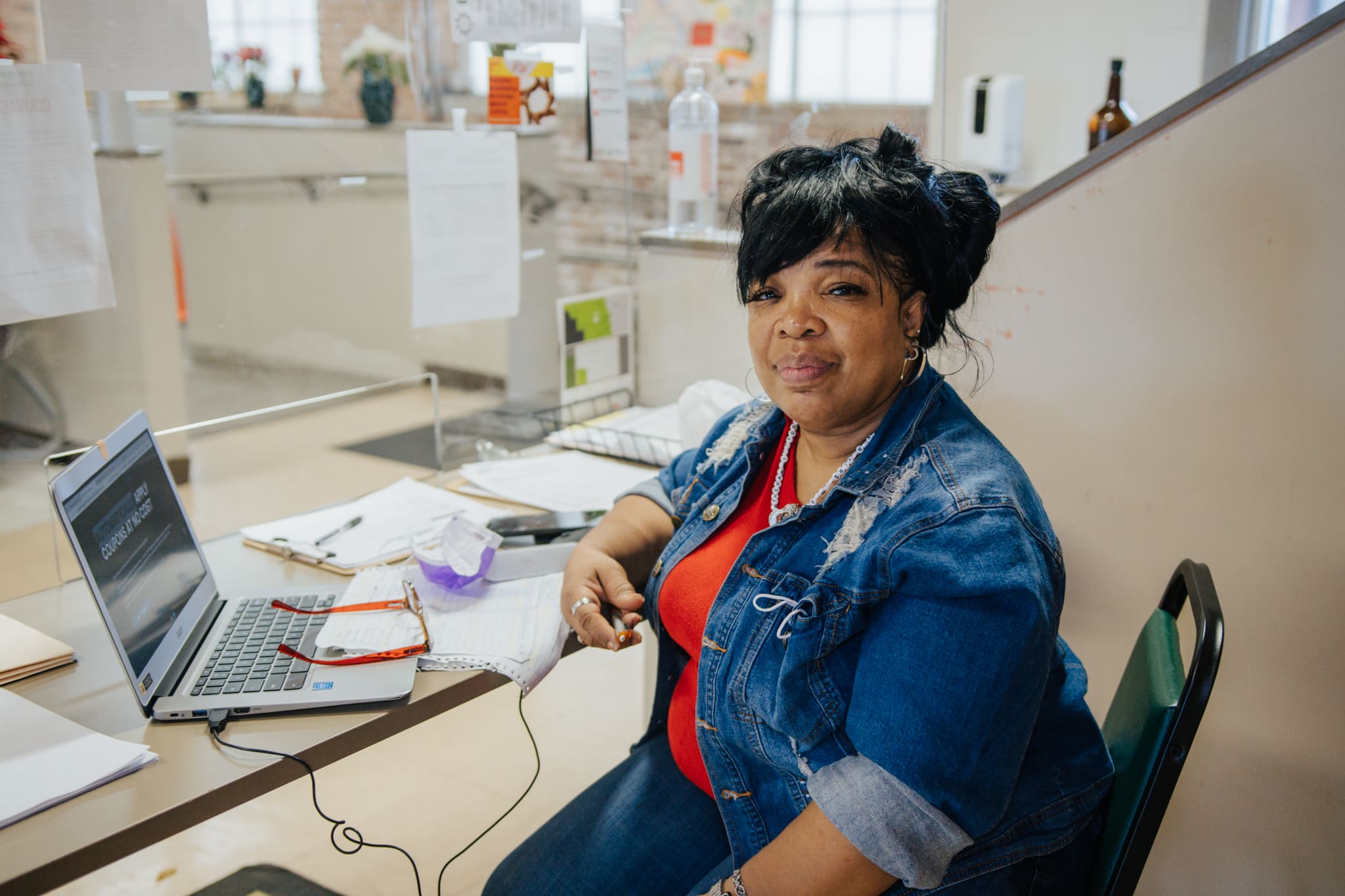
On-staff Qualified Mental Health Professionals (QMHPs) assess guests and develop treatment plans, provide mental health counseling and care coordination, and facilitate group therapy. While a participant may not have ever had access to treatment, QMHPs can come to them to engage them in therapy and medical services.
With the coordination of staff, participants are connected to important resources through partnerships with medical clinics and local organizations. Lawndale Christian Health Center provides Medication Assisted Treatment, on-site psychiatry, and on-site care coordinators. Thresholds Homeless Outreach Program team comes weekly, and their substance use team provides specialized services and case management support. A new partnership with Family Guidance Services, Inc. will make additional harm reduction resources available through an outreach professional trained in Screening, Brief Intervention and Referral to Treatment (SBIRT) who will provide on-site services weekly.
As we see an increase in participants with severe symptoms stemming from co-occurring mental health conditions and substance use disorders, our prevention and intervention methods will continue to expand so every participant has the right support for their needs.
ADDRESSING THE NEEDS OF EACH INDIVIDUAL
We recognize that everyone has different experiences, and everyone’s path to healing is going to look different. Often, when we think about mental health and substance use in the context of situations of homelessness or crisis, we also have to think about the impact of trauma. Breakthrough employs a trauma-informed approach and a variety of engagement strategies.
A participant in Breakthrough’s Transitional Housing program who had a mental health condition and had experienced trauma was triggered by being in a room filled with participants and staff and the hum of activity. She benefited from de-escalation strategies with staff, and access to a quiet room was critical for providing the level of safety she needed.
Another participant came to the Daytime Support Center with a mental health condition and substance use disorder. To address her complex needs, a wellness coach was able to connect her to Threshold’s services, on-site psychiatry, and to single-room occupancy housing nearby.
Wellness coaches have been able to follow cases long-term, so, long after participants have left Breakthrough, they will often reach out to wellness coaches about a certain problem-solving need. When you have moved out of a situation of homelessness or crisis, your wellness needs don’t just go away. The wellness coaches engage guests who have moved on and still need that support.
The hope is that, while we may not be able to move everyone along to recovery within their time at Breakthrough, we want to connect them to the resources that will be with them long-term. Healing from substance use disorder and mental health conditions is a long-term journey.
A COMPREHENSIVE APPROACH
As the opioid crisis continues to affect our city and dual-diagnoses become increasingly common, Breakthrough is taking a holistic approach to support the needs of every person who comes through our doors.
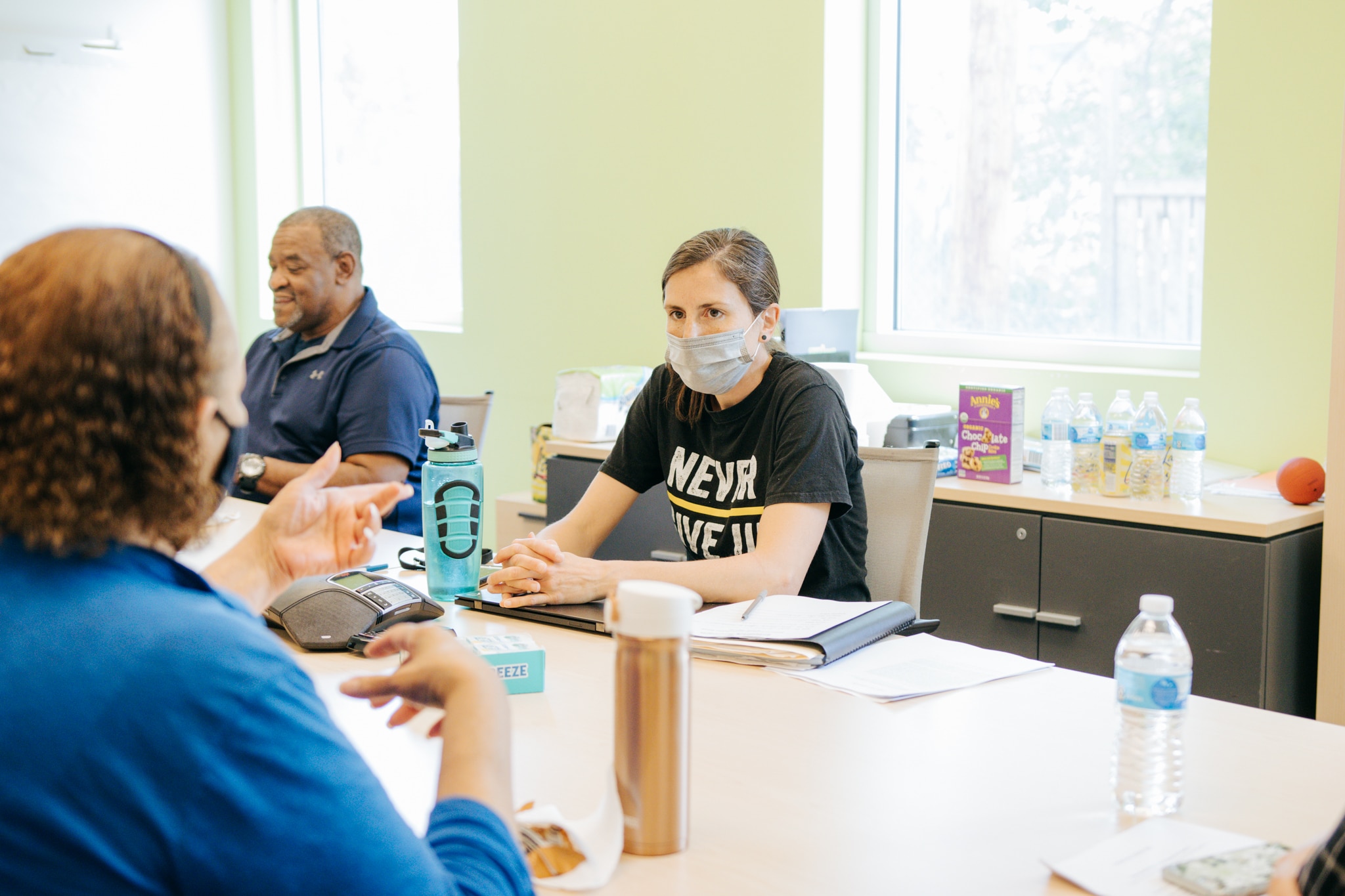
As an ancillary program, the Behavioral Health team works across the organization and partners with staff within adult and youth programs to support the wellness needs of our community. A consultation group allows staff to support each other as clinicians and gain different perspectives. Each person has their own lived experiences and educational backgrounds but all are working to promote the behavioral health of the individuals Breakthrough partners with.
In our prevention and intervention methods, we hope to be a safe space for individuals who are suffering from substance use disorder and mental health conditions and a trusted organization to walk with participants on their journey to healing. Through Breakthrough’s myriad of programs, this support often doesn’t end with mental health and medical services.
For many, Breakthrough also provides housing and basic needs, like meals, showers, clothing, and access to a computer. Breakthrough’s strength lies in our ability to offer wrap-around services. Individuals can be connected to Community Economic Development programs to develop the skills for employment and financial stability or to the Fresh Market food pantry for fresh, high-quality groceries. Every individual has their own barriers to healing and stability, and we know it takes a comprehensive approach to foster wellness in East Garfield Park as is essential for all residents to flourish.
Vision Shapers Series
March 9, 2022
Vision Shapers Conversations – Response to the Opioid Crisis and its Impact on Mental Health
Leaders from Breakthrough's team share from their experience and expertise on the front lines of the opioid crisis and how it impacts mental health
Health & WellnessDaytime Support CenterSeriesBehavioral HealthVision Shapers
June 17, 2021
Vision Shapers Conversations – Violence Prevention
Leaders from Breakthrough's Violence Prevention team share about their work, challenges, and best practices as they work for the wellbeing and safety of East Garfield Park
January 27, 2021
Vision Shapers Conversations – Racial Justice
Reesheda Graham-Washington joins Wilonda Cannon, Senior Director of Development, to host a conversation on racial justice and allyship. In this conversation, she shares about the purpose of allyship, what faith-based allyship looks like, and how to be together better.




